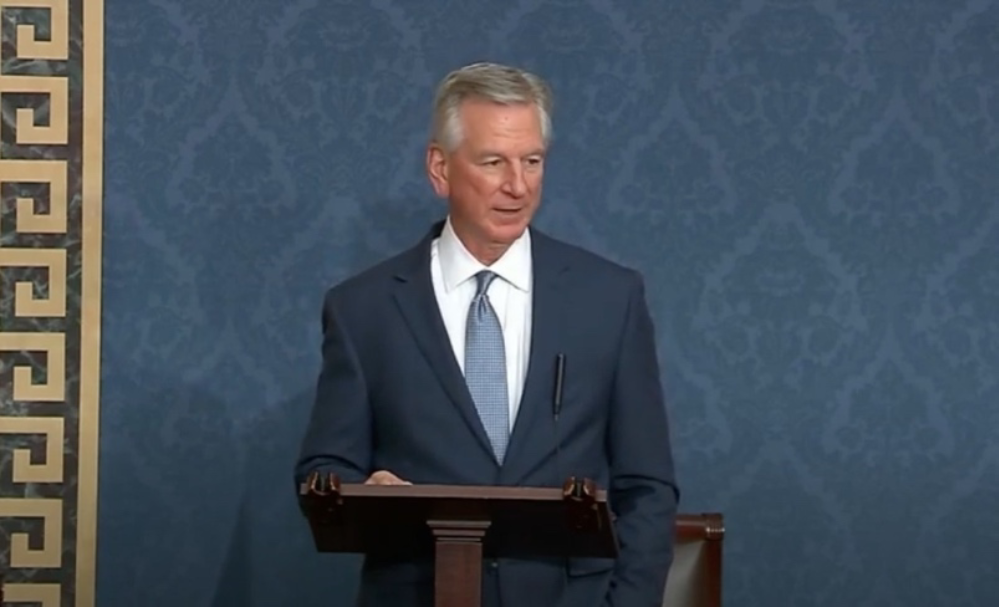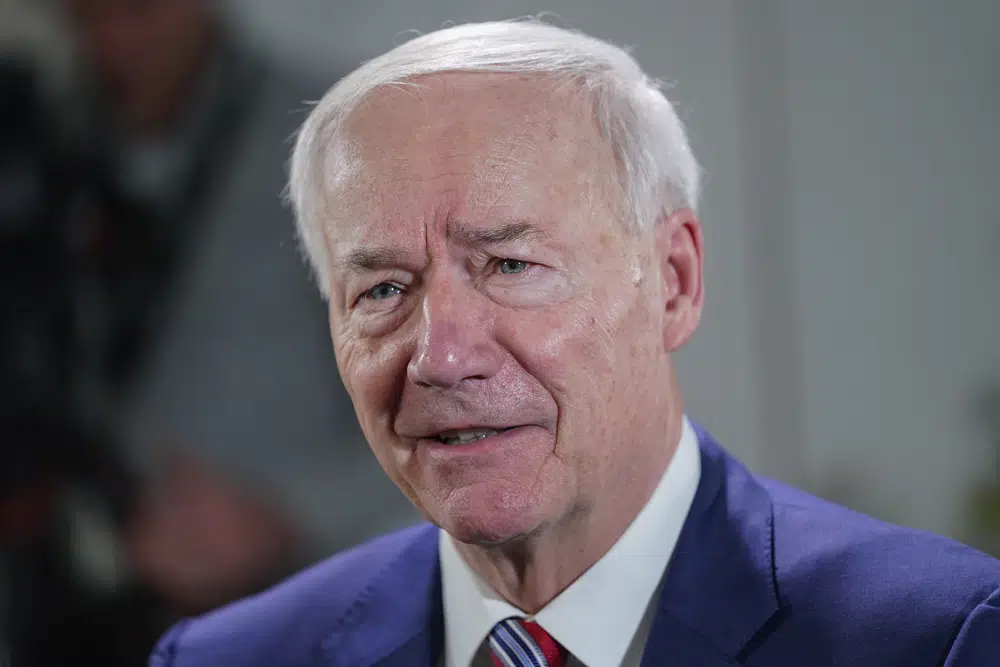House passes Republican energy bill

On Thursday, the U.S. House of Representatives passed H.R. 1, the Lowering Energy Costs Act. Congressmen Gary Palmer, Barry Moore, and Jerry Carl released statements following the passage of the Republican high-priority legislature. “This is a vote to provide solutions to high energy costs and to end Biden’s energy crisis,” said Rep. Palmer. “H.R. 1 will reduce home energy costs for American families and enhances our national security. It includes two provisions that I drafted, one prohibits unelected bureaucrats from banning natural gas stoves, and the other repeals the $27 billion EPA’ slush fund’ for green advocacy groups. This vote is a win for the American people.” “Energy costs are one of the biggest drivers of inflation. Inflation has risen to 6.5% since President Biden took office because of reckless spending, massive regulation, and higher energy costs,” Palmer continued. “President Biden’s policies have also made our country more reliant on foreign adversaries, like China, instead of using the abundant natural resources we have here. Thankfully, the bi-partisan H.R. 1 is a step in the right direction. The Senate needs to take up this important legislation without delay.” “American families are struggling to make ends meet amidst skyrocketing gas, grocery, and electric prices due to Biden’s inflation crisis,” said Rep. Moore. “With this legislation, House Republicans will hold him accountable for his war on American energy by forcing him to unleash American energy production and lower energy costs for working families. President Biden doesn’t have a plan to lower the painful prices you’re paying at the gas pump or the grocery store checkout, but House Republicans do.” “Proud to have worked on The Lower Energy Costs Act to bring Americans some relief at the pump and end our reliance on foreign countries to meet our energy needs,” Carl wrote on Facebook. H.R.1 was sponsored by Congressman Steve Scalise. “For the last two years, President [Joe] Biden and his extremist friends in Washington have waged a war on American energy, and hard-working families across the country are paying the price,” said Rep. Scalise. “Gas and utility costs have skyrocketed to record highs, with the average American paying over 40 percent more for gas at the pump since President Biden took office. Voters gave Republicans the majority in Congress to stop this radical anti-American energy agenda and to take action that will lower prices, and House Republicans listened. I am proud to introduce today H.R. 1, the Lower Energy Costs Act, to cut red tape and increase energy production here at home so we can lower energy costs and stop our dependence on hostile foreign countries for our energy and minerals. With today’s introduction of the Lower Energy Costs Act, we will show the country how to end the war on American energy, become energy independent again, and lower costs for hard-working families who are struggling under the weight of President Biden’s radical agenda.” H.R.1 now goes to the Senate, where it will need support from Democrats for any hope of reaching the President’s desk. To connect with the author of this story or to comment, email brandonmreporter@gmail.com.
Tommy Tuberville pushes to permanently repeal death tax

U.S. Senator Tommy Tuberville joined Sen. John Thune in reintroducing legislation to abolish the federal Estate Tax and cut red tape that is imposing increased restrictions on working families. The two senators previously introduced this legislation in 2021. “The Death Tax destroys American jobs by stifling profitable businesses that employ hardworking Americans,” said Sen. Tuberville. “Our government should be focused on creating an economic environment that preserves small businesses and family farms instead of taxing them out of operation. I will keep pushing for policies that incentivize our next generation of farmers and business owners so that we can continue to rely on their contributions for a strong economy.” “Agriculture is the backbone of South Dakota’s economy,” said Thune. “For years, I have fought to protect farm and ranch families from the onerous and unfair death tax. Family-owned farms and ranches often bear the brunt of this tax, which makes it difficult and costly to pass these businesses down to future generations. I will continue to do everything in my power to remove these roadblocks for family businesses and repeal the death tax once and for all.” “For far too long, the death tax has wreaked havoc on farm families and small businesses across Kentucky,” said Senate Minority Leader Mitch McConnell. “The burden of this unfair and punitive tax can be devastating for families who only want to pass down their hard-earned livelihoods to the next generation. Washington Democrats need to recognize the economic damage they’ve inflicted and join Republicans in ending this harmful tax. I0000’m proud to stand with Senator Thune for repealing the death tax for good. Kentuckians must be allowed to build upon the legacies of their family farms without fear of financial ruin.” Alabama Farmers Federation President Jimmy Parnell also supports the legislation. “Farming is a capital-intensive business with many of the assets such as land and equipment tied to the operation of the farm,” Parnell explained. “Without cash on hand, a family could be forced to sell these assets just to pay the tax burden, jeopardizing the viability of the farm. We need tax policies that encourage profitability of current farmers and the next generation of farmers, and repealing the estate tax is a huge step in the right direction.” Todd Wilkinson is the President of the National Cattlemen’s Beef Association. “No cattle producer should ever be forced to sell their family’s farm or ranch to pay a tax bill due to the death of a family member,” said Wilkinson. “Repealing the death tax is a commonsense way to keep the farm or ranch in the family. As a land-based, capital-intensive industry, most cattle-producing families are asset-rich and cash-poor, with few options to pay off tax liabilities. It is unacceptable that some families are forced to sell off land, farm equipment, parts of the operation, or the entire ranch to pay the estate tax. We need a tax code that promotes the continuation of family-owned businesses instead of breaking them up.” American Farm Bureau explained on their website, “Almost all farmers and ranchers have benefited greatly from congressional action that increased the estate tax exemption to $11 million per person/ $22 million per couple (indexed for inflation), provided portability between spouses, and continued the stepped-up basis. Instead of being burdened with the cost of life insurance and estate planning, farmers are able to upgrade buildings and purchase equipment and livestock to help improve their small business. And more importantly, they have been able to continue farming when a family member dies without having to sell land, livestock, or equipment to pay the tax.” “While the new higher exemption levels set by the Tax Cut and Jobs Act protect the vast majority of our nation’s farms and ranches from the devastating consequences of estate taxes, the exemption levels expire after 2025 when they will return to $5.5 million per person/$11 million per couple. Farm Bureau supports making the Tax Cuts and Jobs Act estate exemption permanent as a step toward permanent repeal.” Farming is capital intensive without being consistently highly profitable compared to other investments. A modest two-thousand-acre farm that was worth $360 an acre in 1983 could be worth $5000 per acre in 2023 valuations – and considerably more in places like Baldwin, Madison, Limestone, or Shelby Counties, where urban sprawl has raised the value of the land – even if the profitability of the farm has not increased. Even the values of the farmhouses, barns, tractors, trucks, and even the cows in the field are included in the IRS’s assessment of the value of the farmer’s estate. A cow grazing out in a cow pasture could have a tax value of $1,500 today versus $350 for her great-grandmother 30 years ago – and the great-grandmother been more profitable given today’s considerably higher input costs for feed, hay, seed, and fertilizer. Alabama’s junior Senator, Katie Britt, is also a cosponsor of this legislation. Tuberville said that he is committed to strengthening rural and farming communities. As 55 of Alabama’s 67 counties are classified as rural, Tuberville has spoken about the importance of preserving family farms in Senate AG hearings and has shared his concerns about how proposed tax hikes would impact family farms with U.S. Agriculture Secretary Tom Vilsack. To connect with the author of this story or to comment, email brandonmreporter@gmail.com.
Alabama school district’s Superintendent Tim Tidmore retires

The superintendent of a central Alabama school district announced his retirement Friday from a post he’s held since 2021. Autauga County Superintendent Tim Tidmore will stay on as a deputy superintendent to help Daniel Boyd, who was appointed to serve as interim superintendent, until a permanent replacement is found. Boyd is the former deputy state superintendent of instruction for the Alabama State Board of Education and a former Lowndes County superintendent. The school board hired Tidmore from Albertville City Schools, where he served as deputy superintendent of federal programs. The board will buy out the remainder of Tidmore’s contract, which goes through December 31, said Spud Seale, the board’s attorney. Board President Kim Crockett praised Tidmore’s leadership. “He led the schools in uncertain times during a global pandemic and returned students from a virtual platform to physical school,” she said. Tidmore said stepping down was his choice and that it was time to retire. “I’ve been in education 35 years and have a new grandbaby,” he said about an hour after the meeting. “This was the best for everyone. It allows the board to begin the appointment process during a time when they can have the best candidates to choose from.” Boyd said he will not seek the position permanently. Timing of the superintendent’s search is key, Seale told the Montgomery Advertiser. “They need to begin the process soon of appointing a superintendent,” Seale said. “December is not the time to begin a superintendent search. You don’t need to be looking for a superintendent in the middle of the school year.” The school system is the largest employer in Autauga County, having about 1,200 full- and part-time employees and an enrollment of about 9,000. It is also one of the lowest locally funded systems in the state. Republished with the permission of The Associated Press.
Ex-Arkansas Gov. Asa Hutchinson launches GOP 2024 bid, calls on Donald Trump to drop out

Asa Hutchinson, who spent two terms as governor of Arkansas, will seek the Republican presidential nomination, positioning himself as an alternative to Donald Trump just days after the former president was indicted by a grand jury in New York. In an interview that aired Sunday on ABC’s “This Week,” Hutchinson said Trump should drop out of the race, arguing “the office is more important than any individual person.” “I’m running because I believe that I am the right time for America, the right candidate for our country and its future,” he said. “I’m convinced that people want leaders that appeal to the best of America and not simply appeal to our worst instincts.” Hutchinson is the first Republican to announce a campaign after Trump became the first former U.S. president to face criminal charges. His candidacy will test the GOP’s appetite for those who speak out against Trump. Others who have criticized Trump, including former Maryland Gov. Larry Hogan, have opted against a campaign, sensing the difficulty of prevailing in a primary. And in a sign of Trump’s continued grip on the Republican base, most in the party — even those considering challenging him for the nomination — have defended him against the New York indictment. That, at least for now, leaves Hutchinson as a distinct outlier among Republicans. In addition to Trump, Hutchinson joins a Republican field that also includes former U.N. Ambassador Nikki Haley and entrepreneur Vivek Ramaswamy. Florida Gov. Ron DeSantis is expected to jump into the race in the summer, while U.S. Sen. Tim Scott of South Carolina, former Secretary of State Mike Pompeo, and former Vice President Mike Pence are among those considering bids. Hutchinson, 72, left office in January after eight years as governor. He has ramped up his criticism of the former president in recent months, calling another Trump presidential nomination the “worst scenario” for Republicans and saying it will likely benefit President Joe Biden’s chances in 2024. The former governor, who was term-limited, has been a fixture in Arkansas politics since the 1980s when the state was predominantly Democratic. A former congressman, he was one of the House managers prosecuting the impeachment case against President Bill Clinton. Hutchinson served as President George W. Bush’s head of the Drug Enforcement Administration and was an undersecretary of the Department of Homeland Security. As governor, Hutchinson championed a series of income tax cuts as the state’s budget surpluses grew. He signed several abortion restrictions into law, including a ban on the procedure that took effect when the U.S. Supreme Court struck down Roe v. Wade last year. Hutchinson, however, has said he regretted that the measure did not include exceptions for rape or incest. Hutchinson earned the ire of Trump and social conservatives last year when he vetoed legislation banning gender-affirming medical care for children. Arkansas’ majority-Republican Legislature overrode Hutchinson’s veto and enacted the ban, which has been temporarily blocked by a federal judge. Trump called Hutchinson a “RINO” — a Republican In Name Only — for the veto. Hutchinson’s successor, former White House press secretary Sarah Huckabee Sanders, has said she would have signed the legislation. Hutchinson, who signed other restrictions on transgender youth into law, said the Arkansas ban went too far and that he would have signed the measure if it had focused only on surgery. Hutchinson endorsed Sanders’ bid for governor. Sanders hasn’t publicly endorsed Trump or anyone else yet in the 2024 presidential race. She has avoided direct criticism of her predecessor, even as she split from him on several policies. Among the bills she’s signed since taking office is legislation intended to reinstate the ban on gender-affirming care for minors that Hutchinson opposed by making it easier to sue providers of such care. She’s also dissolved five panels Hutchinson had formed to advise him on the state’s response to the COVID-19 pandemic, saying she wanted the state to focus on other health challenges. Although he has supported Trump’s policies, Hutchinson has become increasingly critical of the former president’s rhetoric and lies about the 2020 presidential election. He said Trump’s call to terminate parts of the Constitution to overturn the election hurt the country. Hutchinson also criticized Trump for meeting with white nationalist leader Nick Fuentes and the rapper Ye, who has praised Adolf Hitler and spewed antisemitic conspiracy theories. Hutchinson has contrasted that meeting to his own background as a U.S. attorney who prosecuted white supremacists in Arkansas in the 1980s. An opponent of the federal health care law, Hutchinson, after taking office, supported keeping Arkansas’ version of Medicaid expansion. But he championed a work requirement for the law that was blocked by a federal judge. During the COVID-19 pandemic, Hutchinson tried to push back against misinformation about the virus with daily news conferences and a series of town halls he held around the state aimed at encouraging people to get vaccinated. Hutchinson infuriated death penalty opponents in 2017 when he ordered eight executions over a two-week period, scheduling them before one of the state’s lethal injection drugs was set to expire. The state ultimately carried out four of the executions. The former governor is known more for talking policy than for fiery speeches, often flanked by charts and graphs at his news conferences at the state Capitol. Instead of picking fights on Twitter, he tweets out Bible verses every Sunday morning. Hutchinson, who graduated from the evangelical college Bob Jones University in South Carolina, said in the ABC interview that he considers himself part of the evangelical community. “I believe that the evangelical community understands that we need to have a leader that can distance themselves from some of the bad instincts that drive Mr. Trump,” he said. “And I hope that we can do that in the future.” Republished with the permission of The Associated Press.
Narcan now available over-the-counter without a prescription

On Friday, the Alabama Department of Public Health (ADPH) announced that the U.S. Food and Drug Administration (FDA) had approved the Narcan®4 mg nasal spray medication for over-the-counter nonprescription use. Narcan is designed to help reverse the effects of an opioid overdose in minutes. Other options remain prescription only. In addition to Narcan, naloxone is available in an injectable form and other doses. The other formulations and dosages of naloxone will remain available by prescription only. ADPH said that the standing order by State Health Officer Dr. Scott Harris would remain in place for naloxone and does not expire. The standing order allows pharmacists to dispense naloxone formulations and dosages that are prescription only. Medicaid patients can access naloxone through prescription. Louise Jones is the Chief Executive Officer of the Alabama Pharmacy Association. “The Alabama Pharmacy Association applauds the FDA’s decision to make this life-saving drug available without a prescription to anyone who needs it,” said Jones. “Only the Narcan 4 mg nasal spray version has been approved for over-the-counter (OTC) use. The Alabama current statewide standing order issued by the state health officer will remain in place as the injectable version will still require a prescription. It should be noted that Alabama Medicaid recipients have coverage for the nasal spray, but Medicaid requires a prescription for OTC products. In collaboration with the Alabama Department of Public Health and Alabama Medicaid, APA has worked to maintain access for our state’s most vulnerable population.” Narcan nasal spray is the first naloxone product approved for use without a prescription. In the next few months, Narcan can be sold directly to consumers in locations such as drug stores, convenience stores, grocery stores, and gas stations, as well as online. “Pharmacists and pharmacy practices across Alabama who have participated in the Naloxone Statewide Standing Order have been, and will continue to be, instrumental in helping patients get access to naloxone and other supportive therapies to help reduce the risk of an opioid-related overdose,” Jones said. “Pharmacies are highly accessible, critical access points that allow patients, caregivers, and families to connect with their trusted pharmacist to learn more about naloxone and the risk associated with opioid medications.” NPR’s A Martinez on Friday spoke with pediatrician and addiction specialist Scott Hadland about the FDA’s decision. The nasal spray could be on store shelves and ready to buy without a prescription by late summer. “We’re at a point right now in this overdose crisis where since the turn of the century, we’ve had more than a million overdose deaths and where these are increasing,” Hadland said. “We’re now at a point where more than 100,000 people die every year. Narcan is a medication that is safe. It’s effective. It has virtually no downside to administering it. And there really is no reason that it shouldn’t be widely available to save the lives of the so many people who die each year.” “What happens when somebody overdoses is that opioids – and in this day and age, it’s most commonly fentanyl that’s getting into people’s systems – opioids bind to receptors in the body and make it so that a person stops breathing, and that’s what ultimately ends up killing a person,” Hadland explained. “And so what Narcan is doing is it’s getting in, and it’s releasing the fentanyl or other opioids from those receptors and essentially in just seconds or even just minutes reversing that overdose and saving a person’s life. And since Narcan is a medication that’s sprayed up the nose, it’s very easy to administer. Almost anybody can do it with very little training needed.” Cost remains a concern. “It’s one thing to make it available. It’s another thing to make it affordable to people,” Hadland said. “And as somebody who works with families that have been affected by this overdose crisis every day, I know that if the price is too high, many families and patients just simply won’t buy it.” “Yeah, according to GoodRx, 130 bucks for an average price of a two-dose box,” Martinez said. “I know if you make something more expensive, it makes it harder to get, and also, people might want to do something terrible to try and get it.” Drug use among high school students is on a historic decline, but the drugs they use are more dangerous than ever before, resulting in overdose deaths tripling in recent years. Fentanyl is the causative agent, and often the drugs are laced with fentanyl. Only a tiny amount of fentanyl is needed to kill a person, especially someone younger and inexperienced with drugs. Most teenagers who overdose on fentanyl likely did not know it was in the drug they were taking. To connect with the author of this story or to comment, email brandonmreporter@gmail.com.
Gov. Kay Ivey to announce launch of economic development agenda

On Monday, Alabama Governor Kay Ivey will officially launch her push to pass economic development bills at an announcement event in Montgomery. Ivey will present “The Game Plan,” her plan for Alabama’s continued economic success. “The Game Plan” is a proposed package of four economic development bills that Ivey insists will strengthen the state’s competitiveness for job-creating projects. Ivey will be joined by Alabama Department of Commerce Secretary Greg Canfield, Senate President Pro Tempore Greg Reed, Speaker of the House Nathaniel Ledbetter, Senate Minority Leader Bobby Singleton, House Minority Leader Anthony Daniels, and Lieutenant Governor Will Ainsworth. Ivey has made renewing the state’s economic incentives a key goal of her administration this legislative session. “I am proud of the successful track record we have had in recruiting business and industry to both the rural parts of Alabama and the larger cities,” Ivey said in her state of the state address. “Since I’ve been governor, more than $42 billion have been invested in our state, which has created some 78,000 new jobs. For most of those, we can thank the Alabama Jobs Act. And any good coach knows when you have a play that’s working, the team needs to keep running it. Today, we have to look ahead and create an economic development strategy for the 2030s. I assured you we would have a winning game plan here at home, and tonight, I am calling on you to get behind our playbook for economic success, what I am calling The Game Plan. We will ensure stability and growth by renewing and improving the Alabama Jobs Act and the Growing Alabama Act.” Speaker Ledbetter has said that renewing the Alabama Jobs Act would be one of the legislature’s first priorities. “(The Alabama Jobs Act) is going to be priority No. 1 coming back after break. I think you’ll see a big push for that,” Ledbetter stated. “They’ve been very positive for our state. We’ve seen the job growth has been tremendous because of it. We’ve looked at the numbers; we got a return on the investment of 173% over a 20-year period.” Ledbetter believes legislation on this needs to be done quickly. The Alabama Jobs Act, created in 2015 and set to expire this year, has netted $256.8 million in incentives, Sec. Canfield reported in 2022. This amount outpaced the department’s benchmark of $164.6 million. The Joint Study Commission on Renewing Incentives has discussed extending the Jobs Act through 2028 with a higher payout cap. Legislation has not been filed yet. The Jobs Act created two separate incentives: The Alabama Jobs Credit and Alabama Investment Credit. The Jobs Credit gives companies cash rebates on their previous year’s payroll for qualified employees, and companies can get higher rebates if they locate in rural parts of the state or hire veterans. The Investment Credit addresses a company’s capital investment and can be applied to several taxes, including income. Companies can receive incentives for up to 10 years. The incentives are currently capped at $350 million annually. Canfield said the Jobs Act has helped the state recruit 217 projects creating more than 38,000 jobs, and he believes the $350 million cap should be increased. During her state of the state address, Ivey also proposed a plan to dole out $200 million in direct cash payments to Alabama businesses. “I am also proposing we invest even more into our locally owned businesses – the ones engrained into the DNA of our communities – through a $200 million grant program known as our Main Street Program,” Ivey said. “These competitive grants will help revitalize our small cities and towns. When folks think of main streets, they should think of rural Alabama!” Unemployment has dropped to just 2.5%, and state revenues have soared under Ivey. The state is so flush with cash that on September 30, it rolled $3 billion in surpluses from the 2022 fiscal year into the 2023 budget year. Renewing economic incentives is also a priority of Alabama’s Big Ten Mayors. The Mayors of Alabama’s ten biggest municipalities support the reauthorization and accompanying expansion of the Alabama Jobs Act and the Growing Alabama Act. The Mayors claim that the incentive programs established by these bills are critical to keeping Alabama’s economy globally competitive as we work to attract new businesses and jobs to our communities. Some fiscal conservatives have criticized the push to renew incentives. “Economic incentives should be Alabama’s last resort in securing new businesses,” the Alabama Policy Institute’s Justin Bogie argued recently. “Lower tax rates and a better-educated workforce will be enough incentive. It will also improve the lives of all Alabamians.” At this point, it appears that the Governor’s plan, with perhaps some minor alterations in the legislative process, will pass the Alabama Legislature with broad bipartisan support. To connect with the author of this story or to comment, email brandonmreporter@gmail.com.
Barry Moore predicts Donald Trump indictment means he “will get more support than he has ever had”

On Friday, Congressman Barry Moore appeared on Newsmax’s National Report with Shaun Kraisman and Emma Rechenberg to discuss the indictment of former President Donald Trump. Moore predicted that Trump would get more support because of the indictment. “He is going to get support he didn’t know he had,” Moore said. “I think you are going to see a unifying – not just the base for Donald Trump, but the Republican Party because the American people realize that there is more at stake now than just whether you like Donald Trump or not. American liberty is at stake. Trump is the tip of the spear, and he has said many times that the only thing between them and you is me, and now they are coming after him. This DA in New York has just mobilized the whole rest of the country.” Moore predicted that the indictment of Trump would backfire on Democrats in the coming election. “That DA might get reelected,” Moore said. “Mr. [Alvin] Bragg might get reelected, but I think it backfires in the rest of the country because we see this as just another Russia Russia, another impeachment impeachment, another Ukraine Ukraine – all of that stuff that we were told that President Trump did that is so horrible – the investigation into his tax returns.” “I think it is going to backfire on the Democrats, and we are going to see a turnout like we have never seen,” Moore said. “I don’t think they can cheat enough to win this time.” When Moore was in the Alabama State Legislature, he was indicted on perjury charges. Moore was ultimately found not guilty by a jury, but he said that that indictment helped his re-election campaign in 2014. “No, not at all,” Moore said. “After I was indicted, and it was for political purposes, that following weekend, we had more volunteers than we’ve ever had in the campaign – and it was just people who knew we were fighting for the American people even at the state level. This will motivate people to mobilize and vote, and [Trump] will get more support than he has ever had.” New York State Supreme Court Judge Sol Wachtler famously said in 1985 that prosecutors have so much influence on grand juries that they could even “indict a ham sandwich.” To emphasize Wachtler’s famous maxim, Rep. Moore’s office handed out ham sandwiches on Friday. “We have got them in the office that says: ‘Indict this,’” Moore said. “I am inviting everyone to come by. You can indict your ham sandwich. You can do whatever you want to do, but we’re rallying behind President Trump today with ham sandwiches.” Moore released a statement on Thursday denouncing Trump’s indictment. “The arrest of President Trump demonstrates more than ever how the Democrats have weaponized the government against the American people,” Moore said. “As a member of the House Judiciary Committee, I am committed to holding the Soros-backed Manhattan District Attorney accountable by requesting to review all documents in this case and working to ensure that federal funds are not used on this political witch hunt.” Barry Moore is in his second term representing Alabama’s Second Congressional District. To connect with the author of this story or to comment, email brandonmreporter@gmail.com.
Daniel Sutter: TikTok and national security

The House Energy and Commerce Committee grilled ByteDance CEO Show Zi Chew as Congress seeks to either force a sale of TikTok to a U.S. company or ban the app. Multiple factors are producing a coalition to ban something enjoyed by millions of Americans. One factor is social media’s alleged impact on anxiety and depression in teens. The research is out of my field of expertise, so I will not comment on its strength. History, though, reminds us that new media frequently produce panic. TV and video games supposedly harmed prior generations of Americans. Even if social media and specifically TikTok harmed teens, we should try a more focused protection strategy first. Limiting minors’ social media access is not something I favor but would consider it before a ban for all Americans. National security issues have been more prominent, both the sharing of Americans’ personal data with the Chinese Communist Party (CCP) and TikTok’s propaganda potential. CEO Chew says the company will store American users’ data on servers outside of China and not share this with the CCP. Data sharing does not appear to have occurred to date. I seriously doubt the company’s ability to keep users’ data from the CCP. The increasingly authoritarian CCP could, even if they do not already have backdoor access, threaten company executives (and their families) for access. TikTok users should assume that the CCP can access their data. So what? Facebook, Google, and Twitter collect (and share and sell) similar data to TikTok. Lots of information about each of us is already available. The CCP could likely find out everything they could get about a user from TikTok through alternative means. TikTok’s critics are never specific about how the CCP will use all this personal data. Big data is a boon for advertising, allowing companies to identify many other things their customers do, browse, or buy online. This helps target ads to persons most likely to buy a product. Advertising is part of the voluntary market economy. Targeted ads might be disconcerting – like seeing an ad for a book I just browsed on Amazon pop up on another website – but help companies be more persuasive. No matter how many ads you see, you still must choose to make a purchase. How does improving the effectiveness of persuasion affect government spying? Do we fear targeted ads recruiting Americans to spy for China? Now let’s consider TikTok as a communist propaganda tool. The competition for eyeballs on TikTok and social media is incredibly intense. Users looking for content from top TikTokers like The Rock, Jason Derulo, Charlie D’Amelio, or Bella Poarch are not going to watch boring propaganda videos instead. I suspect propagandistic ads would be similarly ineffective. Fears of CCP propaganda seemingly reflect the same mindset that Russian social media trolls swung the 2016 election. Yes, Russian government employees posted material on Facebook. And bot accounts liked and shared other content. The Russian-linked accounts posted little material and attracted less attention. Furthermore, the CCP can more directly and effectively influence Americans. The lure of access to the Chinese market leads Apple, Disney, and the NBA to remain silent about China’s human rights violations. Many elected officials have lucrative Chinese business deals. Politicians are proposing shutting down a successful business. Forbes’ John Tamny has described this as a “mugging.” Tens of millions of Americans choose to post and watch TikTok content, seemingly without fear of becoming pawns of the CCP. Americans use TikTok to earn a living. Charlie D’Amelio makes over $100,000 per post from sponsorships. She and other TikTok influencers achieve this through their own talent and effort. The bar to shut down or disrupt the livelihoods of law-abiding Americans should be extremely high. Valid national security claims must go beyond fears and possibilities. Otherwise, any business could be shuttered for its potential future foreign collaboration. Politicians should not be allowed to disrupt business and life because they fear monsters under the bed or seek votes in the next election. Daniel Sutter is the Charles G. Koch Professor of Economics with the Manuel H. Johnson Center for Political Economy at Troy University and host of Econversations on TrojanVision. The opinions expressed in this column are the author’s and do not necessarily reflect the views of Troy University.


